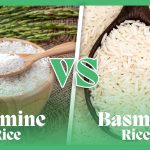Have you ever thought about how your body obtains the vital nutrients required for optimal health? Come with me as we solve the puzzle of mineral nutrition!
Consider minerals to be the minuscule designers of your body’s architecture. These essential nutrients function as your body’s building blocks, keeping your blood flowing normally, your bones strong, and your muscles functioning at their peak. We’ll examine the benefits of mineral nutrition in this post and learn why these unsung heroes are so important to your general well-being.
An Overview of Essential Minerals:
Take a fascinating tour into the realm of mineral nutrition, where these little superheroes are the essential building blocks of a healthy, strong human body. Mineral nutrition nourishes human bodies with the vital minerals necessary for basic processes like strong bones, a healthy circulatory system, and appropriate muscular performance. Minerals are not optional supplements; rather, they are nutrient powerhouses necessary for functions such as blood coagulation, neuron functioning, and support of the immune system.
We’ll meet important minerals in this excursion, including iron, calcium, potassium, and zinc, and learn about their distinct roles in maintaining general health. Come along on a mineral-rich journey that holds the key to unlocking the mysteries of a happier and healthier existence.
Macro-minerals:
Macro minerals include vital elements important for many body processes such as nerve transmission, muscular contraction, and bone health. Sufficient intake, derived from a varied diet, is essential for preserving good health and avoiding problems associated with excess or deficiency.
Calcium:
Symbolized as Ca on the periodic table, calcium is a basic mineral that is necessary for the structural integrity and functional balance of the human body.
Functions in the human body:
Powerful minerals like calcium are necessary for more than simply healthy bones. It is essential for blood coagulation, neuronal transmission, and contraction of muscles. Research demonstrates its importance for preserving the health of bones and avoiding osteoporosis.
Food Sources:
Consuming dairy products like milk and cheese, and leafy green vegetables such as broccoli and kale will make you able to receive your recommended daily intake of calcium. There is scientific proof that these food sources are beneficial for increasing calcium consumption. (1)
Recommended allowance:
Age and gender-specific recommendations vary, but in general, people should aim for 1000–1300 mg per day. Scientific recommendations support the notion that sustaining good health requires an adequate consumption of calcium.
Excess and deficiency:
Both too much and too little calcium can weaken bones, induce muscular cramps, wear you out, result in kidney stones, and hinder mineral absorption. Research results emphasize how important it is to maintain a balanced diet to prevent these issues. (1)
Magnesium:
Symbolized as Mg on the periodic table, often considered the mighty mineral, that is essential to preserving our health. It is a powerful vitamin that merits our consideration due to its essential contributions to general health.
Functions in the human body:
Magnesium is necessary for more than 300 enzymatic processes, sustaining the health of muscles and nerves, generating energy, and keeping the heart healthy. (2)
Food sources:
Nuts, seeds, whole grains, green leafy vegetables, and legumes are good sources of magnesium.
Recommended allowance
Depending on age, guidelines suggest 400–420 mg for males and 310–320 mg for women. Consuming enough magnesium is beneficial to general health. (2)
Excess and deficiency:
A deficiency can induce nausea, muscle cramps, or irregular heartbeats while an excess of supplementation can result in diarrhea. For optimal health, magnesium levels must be kept in balance. (2)
Phosphorus:
Symbolized as P on the periodic table, Phosphorus is the building block of the body that helps produce bones, regulate energy metabolism, and maintain cellular structure. This necessary mineral found in many food sources, is needed for the upkeep of the skeletal strength and health of our cells and tissues.
Functions in the human body:
As a structural element of DNA, RNA, and ATP, phosphorus aids in the development of bones and teeth, energy metabolism, and renal functioning. (3)
Food sources:
Dairy products, beef, chicken, fish, nuts, plus whole grains are good sources of phosphorus.
Recommended allowance:
According to guidelines, individuals should consume around 700 mg, which helps to sustain the body’s phosphorus equilibrium and promote good health. (3)
Excess and deficiency:
A calcium imbalance can result from taking too many supplements, whereas deficiencies are uncommon but can induce weakness or loss of appetite. (3)
Sodium:
Symbolized as Na on the periodic table, Sodium manages the human body’s delicate balancing act for health. This mineral, which is often obtained from salt and natural sources, is vital for nerve functioning and fluid balance in the body. It also plays a critical role in preserving overall physiological homeostasis for the best possible health.
Functions in the human body:
Maintaining fluid equilibrium, neuronal transmission, and muscle contraction all depend on sodium. It is a necessary electrolyte for all-around cellular activity.
Food sources:
Meals served in restaurants, processed meals, and table salts are common dietary sources of sodium. However, it is important to be aware of these sources that aid in controlling salt consumption for a balanced diet. (4)
Recommended allowance:
According to guidelines, people should consume no more than 2,300 mg of salt daily, with some individuals having an even lower goal of 1,500 mg. This will help to maintain heart health and general well-being. (4)
Excess and deficiency:
Excessive salt consumption can cause hypertension and an increased risk of cardiovascular illnesses, even while sodium shortage is rare and might cause nausea or cramping in the muscles. Keeping your salt intake in check is essential for preserving your best health. (4)
Potassium:
On the periodic table, potassium is represented by the symbol K. Potassium is a crucial mineral that is needed to sustain healthy muscle and nerve function, maintain the body’s electrical equilibrium, and control the body’s fluid balance.
Functions in the human body:
A vital electrolyte, potassium is necessary for maintaining healthy heart and muscle function, controlling fluid balance, and promoting nerve transmission. Its presence contributes to overall cellular health by being necessary for the complex coordination of many physiological activities. (5)
Food sources:
Bananas, citrus fruits, potatoes, green leafy vegetables, and legumes are excellent sources of potassium. Including these high-nutrient items in one’s diet guarantees a sufficient intake of potassium, which supports the body’s many processes.
Recommended allowance:
For individuals, 2500–3000 mg of potassium should be consumed daily on average. Individual needs, however, could differ depending on things like age, sex, and general health.
Excess and deficiency:
Hypokalemia, or low potassium, can cause weariness, erratic heartbeats, and rigidity in the muscles. On the other hand, hyperkalemia, or elevated levels of potassium, can cause dangerous side effects such as cardiac arrhythmias. (5)
Micro minerals:
Microminerals, also referred to as trace minerals, are necessary substances that the body needs in lower amounts but are nonetheless very important for many physiological processes. Minerals such as iron, zinc, copper, selenium, and iodine, although their tiny existence, are essential for everything from immune system support to enzyme activity.
Iron:
On the periodic table, iron is denoted by the symbol Fe and is a crucial mineral for the human body’s oxygen transport system. Iron is a crucial component for general health and well-being since it prevents anemia and ensures adequate energy generation.
Functions in the human body:
Iron is necessary for the blood’s oxygen delivery system, energy synthesis, and immune system maintenance. It is essential for avoiding iron deficiency anemia. (6)
Food sources:
Lean meats, chicken, fish, beans, and fortified cereals are good sources of iron. Combining these sources guarantees a varied intake of iron for general health.
Recommended allowance:
According to recommendations, men and women should consume various amounts of iron each day as women need more because of monthly losses. Sufficient consumption of iron is essential to avoid deficiencies and promote general health.
Excess and deficiency:
A low iron level can cause weakness, exhaustion, and weakened immunity; an overabundance of iron may be poisonous and harm organs. (6)
Zinc:
Symbolized as Zn on the periodic table, often referred to as the “Immunity’s Guardian” zinc is a vital trace mineral necessary to support the body’s defenses and is critical for wound healing, immunological support, and general health.
Functions in the human body:
Zinc aids in DNA synthesis, healing of wounds, and immune system activity. It is necessary for healthy development and growth and strengthens the body’s defenses against illnesses. (7)
Food sources:
Zinc may be found in dairy products, legumes, nuts, and meat.
Recommended allowance:
Approximately 11 mg for males and 8 mg for women are advised by guidelines.
Excess and deficiency:
A zinc excess can cause nausea and vomiting, while a zinc deficit can cause slowed healing of wounds, dermatitis, and reduced immunological functioning. (7)
Copper:
The periodic table symbol Cu, or copper, is referred to as the “Cellular Architect” because of its crucial involvement in the development of connective tissues and the activity of enzymes.
Functions in the human body:
Copper is involved in the production of red blood cells, immune system support, and the maintenance of bone health and neurons. (8)
Food sources:
Seafood, nuts, seeds, and whole grains are good sources of copper.
Recommended allowance:
Adults should take about 900 mcg, according to guidelines.
Excess and deficiency:
An overabundance of copper can induce nausea and harm to the liver, while a shortage can result in anemia and deformities of the bones.
Selenium:
With the symbol Se standing for selenium, this element becomes the “Antioxidant Guardian” of the body, actively contributing to protecting against oxidative stress, and is an important antioxidant as it supports the immune system and shields cells from harm.
Functions in the human body:
As a potent antioxidant, selenium helps regulate the immune system, supports thyroid function, and more. (9)
Food sources:
Seafood, pork, poultry, and nuts are good sources of selenium.
Recommended allowance:
Adults should take about 55 mcg, according to guidelines.
Excess and deficiency:
An excess of selenium can produce selenosis, which can cause hair loss and digestive problems, while a selenium deficit can result in weariness and weakening of the muscles. (9)
Iodine:
In the complex orchestra of operations that is our body, iodine, represented by the letter I on the periodic table, stands out as the silent protector. Known aptly as “The Thyroid Regulator,” iodine is essential for maintaining thyroid function and promoting development and metabolism in a balanced manner.
Functions in the human body:
Iodine is essential for the synthesis of thyroid hormone, controlling metabolism, and promoting healthy growth and development, particularly in young children and pregnant women. (10)
Food sources:
Seafood, dairy products, and iodized salt are good sources of iodine.
Recommended allowance:
Adults should take about 150 mcg, according to guidelines.
Excess and deficiency:
The deficiency of iodine may impair cognitive functioning and is the factor behind goiter as well. On the other hand, the excess consumption of iodine may cause thyroid dysfunction. (11)
Mineral absorption:
Understanding the complex relationship between mineral absorption and bioavailability reveals the vital role that dietary decisions have in the body’s capacity to absorb vital minerals.
Factors hindering the mineral absorption:
Mineral absorption is influenced by several factors, including age, gender, and nutritional status of a person, the dietary source of the mineral, and gastrointestinal health. The way that minerals are found in food, the way that various nutrients interact with one another, and personal health traits all have a significant impact on how well minerals are absorbed.
Increasing bioavailability:
There are crucial factors to take into account to maximize mineral bioavailability. Mixing and matching food sources, using certain cooking techniques to improve absorption, lowering phytic acid content in grains and legumes, making sure you’re getting enough vitamin D and calcium, and adding probiotics can all help improve the body’s capacity to absorb and use vital minerals.
Consequences of Common Mineral Deficiencies:
Iron deficiency:
A major worldwide health issue, iron deficiency mostly affects underdeveloped nations due to the limited availability of varied diets and fortified foods. Due to their increased vulnerability, pregnant women and children are among the most common groups to suffer from iron deficiency anemia.
The effects are severe and include symptoms such as weakness, exhaustion, and decreased cognitive function. Severe instances highlight the urgent need for focused therapies and nutritional assistance since they may cause pregnancy difficulties and delayed development in children.
Zinc deficiency:
A common issue that affects both industrialized and developing countries, zinc deficiency has unique health risks, particularly for communities that eat a lot of plant-based foods. Children in particular deal with delayed wound healing, weakened immune systems, elevated susceptibility to infections, and stunted growth.
Iodine deficiency:
Iodine shortage continues to be a major worldwide problem that has a substantial impact on thyroid function, especially in areas where soil and water iodine levels are low. The effects are global, resulting in iodine-deficient illnesses that are prevalent. Diseases like cretinism, goiter, and intellectual impairments highlight how serious this shortage is. Pregnant women and newborns are among the vulnerable groups who are particularly at risk, which highlights the vital significance of iodine supplementation and comprehensive public health programs to guarantee healthy thyroid function worldwide.
To sum up, the investigation into mineral nutrition highlights its indisputable importance in supporting a robust and healthy body. The various tasks that minerals perform highlight how essential they are, ranging from supporting essential physiological processes to strengthening bones and muscles. The call to action is clear as we dive more into the nuances of mineral nutrition: give these hidden heroes priority by making a deliberate effort to eat a well-balanced diet.
References:
- https://www.hsph.harvard.edu/
- https://ods.od.nih.gov/factsheets/Magnesium-HealthProfessional/
- https://ods.od.nih.gov/factsheets/Phosphorus-HealthProfessional/
- https://www.heart.org/en/healthy-living/healthy-eating/eat-smart/sodium/sodium-sources
- https://ods.od.nih.gov/factsheets/Potassium-HealthProfessional/
- https://ods.od.nih.gov/factsheets/Iron-HealthProfessional/
- https://ods.od.nih.gov/factsheets/Zinc-HealthProfessional/
- https://ods.od.nih.gov/factsheets/Copper-HealthProfessional/
- https://ods.od.nih.gov/factsheets/Selenium-HealthProfessional/
- https://www.who.int/health-topics/micronutrients
- https://www.thyroid.org/iodine-deficiency/









